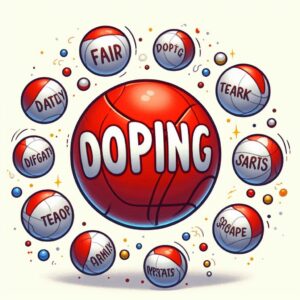ANTI-DOPING WHEREABOUTS RULE IN SWITZERLAND

The fight against doping in sport seems to be never ending and sports governing bodies – at the national and international levels – are committed to providing clean sport, whereby sportspersons can compete fairly and healthily.
In Switzerland, anti-doping matters are regulated by the Swiss Olympic Doping Statute of 26 November 2021, which came into force on 1 January 2022, and which implements the World Anti-Doping Code of the World Anti-Doping Agency (WADA).
One of the measures towards achieving clean sport is the so-called ‘whereabouts rule’, which was introduced by WADA on 1 January 2009, and which continues to prove controversial amongst sportspersons.
For example, the recently retired 22-time Grand Slam tennis champion, Rafael Nadal, has described the rule as “a high price to pay to practise your sport.” Other critics have characterised the rule as “an unjustified invasion of privacy.” We also think that the rule lacks proportionality and that it should be enough to mention the training place and time.
However, WADA claims that the rule is needed so that out-of-competition doping tests, conducted at any time and without prior notification, can be planned efficiently.
All sportspersons and teams concerned must provide their whereabouts on a quarterly basis. Sportspersons provide their own whereabouts information themselves, and, in the case of team sports, the information is provided by the team administrator on behalf of the team members.
The whereabouts information must be submitted, covering the following quarter in full, with the following deadlines:
- December 15
- March 15
- June 15
- September 15
Any and all changes of plan or additional information must be updated immediately to ensure that the information is complete and up to date.
The required whereabouts information is quite detailed, many would say quite unreasonable and invasive, and includes where sportspersons and team members will be between the hours of 6 a.m. and 11 p.m. on any given day during the three months.
Imprecise, incomplete, and out-of-date information, as well failures to provide this information on time, may result in sanctions.
Also, any combination of three missed tests and/or filing failures with Swiss Sport Integrity and/or the International Sports Federation within a 12-month period are deemed to be a whereabouts failure. Under Article 2.4 of the Swiss Olympic Doping Statute, this constitutes an anti-doping rule violation (ADRV) and may be punished by a suspension.
In the case of whereabouts failures involving Swiss Sport Integrity, athletes may apply for an administrative legal review pursuant to the corresponding rules of procedure.
If not satisfied with the outcome of this review, an appeal lies to the Anti-Doping Division (ADD) of the Court of Arbitration for Sport (CAS), as a first instance body, to decide whether an ADRV has been committed and, if so, to determine the appropriate sanction to be imposed. In general, a further appeal lies from the decision of the ADD to the CAS Appeals Arbitration Division, and from there, in limited circumstances, to the Swiss Federal Supreme Court.
For further information and advice on the whereabouts rule and on doping cases generally, including appeals, email Noemi Delli Colli at ‘dellicolli@valloni.ch’.